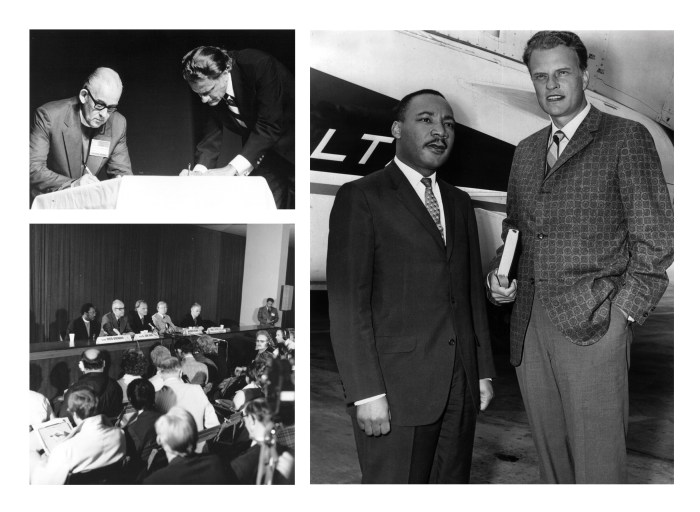Got a question for CT’s advice columnists? Email advice@christianitytoday.com. Queries may be edited for brevity and clarity.
Q: A woman at our church wants to join my community group, but her husband doesn’t seem to want to connect with the men in the group, and now they don’t want to reach out to him either. The women want to invite the family to join, but I feel uneasy about the husbands’ relationship. —Hesitant in Hawaii
Beth Moore: You used a perfect word in your description: uneasy. One of the biggest challenges of fellowship within a local church is that we may have little in common beyond pulling into the same parking lot on Sundays. We may not even naturally like one another—yet the New Testament calls us family.
If community among flawed humans is anything at all, it’s uneasy, and Jesus likely fashioned it this way on purpose: to require not only his help but also his presence to foster prayer, faith, and the setting aside of personal preferences.
I’ve learned through the years that some of the relationships I found most bewildering to develop became the most satisfying over time. We fought hard for the relationship and won. Sometimes group dynamics prove too strained to maintain, but do give the Lord time to work.
I recommend asking the family to join. If the husband doesn’t wish to come, then you’ve not withheld community from the one longing for it. If he does come but remains aloof, receive him anyway and encourage the group to welcome him.
Disruption is a different story, but let us not be resistant to those who simply don’t feel like a good fit: God may be working toward deeper maturity in your group—and the husband may warm up over time and explain his reluctance.
God bless you all as you take the relational risks that invariably come with community! Seek the Lord, and if he leads differently, don’t give this matter another glance.

Q: I’m a runner involved in a local running group. The group is hosting a one-mile beer race: Before each quarter mile, you drink a whole beer. I’d be at least very buzzed—if not outright drunk—after four beers. Is this the kind of drunkenness the New Testament forbids? —Parched in Pennsylvania
Kevin Antlitz: The short answer is yes. When I think of what the Bible says about alcohol, I think of John’s gospel. Mary’s first words in this gospel, funnily enough, are “They have no more wine” (John 2:3). Jesus’ first miracle is turning water into wine. He did this at a Jewish wedding after the party had been raging for a while, which means the guests were probably already feeling pretty good.
But context matters. Of all things, a wedding is worth celebrating with a few brews.
I’m not so sure about a beer mile.
As I thought about your race, another runner and race came to mind: Eric Liddell and the race he didn’t run. Though a favorite to win the 100-meter dash in the 1924 Olympics, Liddell refused to run in the qualifying heats because they took place on a Sunday.
Liddell went on to win gold in a different event, but his costly obedience offers some helpful perspective. If Liddell was willing to forgo the chance at Olympic glory so as not to disobey the command to rest on the Sabbath (Ex. 20:8–10), you should probably forgo whatever glory is to be had around your local track so as to not disobey God’s prohibition of drunkenness (Eph. 5:18).
So I’d sit this one out—or ask if you can trade cans of beer for cups of milk. If the goal is to be miserable while running a mile, this will help you earn a new PR.

Q: The last time a friend of mine came to stay with me, he visited my church. He’s disabled, and the sermon used a metaphor about disability. It was biblical, and he didn’t comment, but I know he didn’t appreciate it and can understand why. Now he’s coming to visit again. Do I invite him to church? —Mortified in Minnesota
Kiara John-Charles: I can only imagine how uncomfortable the entire sermon must have been for you. You invited a friend with a disability to church, expecting to share the positive experience you’ve had. But the sermon took an unexpected turn with a metaphor about disability, likely leaving you feeling awful.
It’s disheartening when our expectations aren’t met, especially when we’re excited to share an experience.
While your assumption that the sermon made him uncomfortable may be valid, it’s essential to acknowledge that you don’t know for sure. Our own anxieties can sometimes cloud our perception of a situation. And even if he did have unexpressed frustrations, that doesn’t necessarily mean he’s against visiting your church again.
Consider asking God for guidance on how best to discuss the idea of attending church together during his visit. God will give you peace and clarity about how to proceed with the conversation.
If I were in your shoes, I would approach this talk casually, giving your friend the power to decide whether he wants to attend or not. Maybe just let him know what time the service is and that you plan to attend, welcoming him to join if he wants to.
If he declines, it provides an opportunity to explore why, if you feel comfortable doing so. On the other hand, if he agrees to come, it could lead to a positive experience, and this time he might find encouragement in a sermon that resonates with him.

Got a question for CT’s advice columnists? Email advice@christianitytoday.com. Queries may be edited for brevity and clarity.









































































